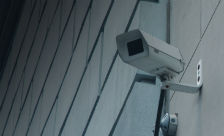Surveillance Law: understanding the implications of the draft Investigatory Powers Bill
 Academics in The Dickson Poon School of Law have been working to understand the implications of the draft Investigatory Powers Bill for surveillance law and privacy rights in the UK.
Academics in The Dickson Poon School of Law have been working to understand the implications of the draft Investigatory Powers Bill for surveillance law and privacy rights in the UK.
Dr Cian Murphy and Natasha Simonsen’s evidence to Parliament’s Joint Committee on the Draft Investigatory Powers Bill is now available on the Committee’s website. Their written submission ‘welcomes the effort to clarify and consolidate the law in the draft Investigatory Powers Bill.’ The authors believe that ‘the existing legal framework has serious flaws [and] this process is an important opportunity to rectify those flaws and to construct a sound and enduring framework.’
In addition to the written submission made by Dr Murphy and Ms Simonsen, the School has hosted three events on the draft Bill. In November a Thought Salon was held in collaboration with the NGO JUSTICE in the Portico Rooms in Somerset House. Speakers included the Independent Reviewer of Terrorism Legislation, David Anderson Q.C., and Andrea Coomber, Director of JUSTICE.
On 2 February 2016, The Oxford Internet Institute held a roundtable on the draft Investigatory Powers Bill in collaboration with The Dickson Poon School of Law. The event, which was held under the Chatham House Rule, saw discussion of both the Bill’s technological complexities and its legal innovations. It heard evidence from Mr William Binney, former Technical Director of the US National Security Agency, amongst others.
The Joint Committee on the draft Investigatory Powers Bill published its report into the proposed legislation on 11 February – making several references to the evidence given by Murphy and Simonsen, in particular on the process for the authorisation of warrants, on the appointment of Judicial Commissioners, and on the reform of the Investigatory Powers Tribunal. The report notes, in particular, Murphy and Simonsen’s criticism that the latter Tribunal is ‘opaque’ and calls on the Government to consult on its reform.
On 22 February the School co-hosted a further event, at the House of Lords, with JUSTICE, under the chairwomanship of Baroness Helena Kennedy Q.C. The event saw presentations from Matthew Ryder Q.C., and from Joanna Cavan of the Interception of Communications Commissioner’s Office. It was attended by Members of the House of Commons and the House of Lords.
Today, 1 March 2016, the Telegraph published a cross-party, cross-sectoral letter calling on the Government to delay the legislation until its problems can be resolved through further scrutiny and consultation. The letter was co-signed by Chantal Aimée-Doerries QC, Chairman of the Bar, and by Jonathan Smithers, President of the Law Society. Professor Keith Ewing of The Dickson Poon School of Law also joined Murphy and Simonsen on the list of over 100 signatories.
See related article: Surveillance Powers Roundtable